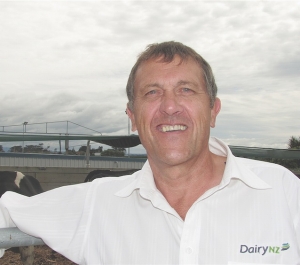Hillerton says a rewarding aspect of being a scientist at DairyNZ is direct involvement with dairy farmers, understanding the problems on farms and helping develop solutions and technologies.
“Much of the value of that science lies in taking research and knowledge directly to farmers, and testing how to apply and transfer innovative technologies and solutions.”
He remarks on notable highlights during his time at DairyNZ, especially “the quality of the scientific research [there] which has become outstanding. We now have top scientists who are truly world-leading.
“An example is our work identifying genetics involved in feed conversion efficiency by dairy cows. That work was recently awarded gold status by the Ministry of Business, Innovation and Employment, and won a Kudos award (Hamilton Science Excellence Awards) late last year.
“Now the science team and others, including New Zealand Animal Evaluation Limited (NZAEL) and Livestock Improvement (LIC), are putting a lot of effort into getting the research findings rolled out to all New Zealand dairy farmers through better bulls.
“Various other projects are also likely to produce benefits, including growing more feed, improving fertility through better uterine health and finding natural resistance to mastitis.”
DairyNZ chief executive Tim Mackle says Hillerton has made a great contribution to the New Zealand dairy industry over the past seven years.
“Eric has driven a significant improvement in science quality and output, and his relentless focus has had real benefits for farmers. Farmers can have more confidence in adopting science-based recommendations, thanks to the quality of science and the resulting publications.”
Hillerton has also been heavily involved with universities, the Royal Society of New Zealand and many others, helping ensure a ‘pipeline’ of new young dairy scientists. “It’s vital we encourage, train and mentor the next generation of researchers to replace the older guys who are moving into retirement.”
Hillerton joined Dexcel (now DairyNZ) in 2006 from the Institute for Animal Health in the United Kingdom. His early research career was spent at the University of Reading and the National Institute for Research in Dairying. He is the New Zealand member of the International Dairy Federation standing committees on animal health and welfare, and farm management, and a past-president of the international National Mastitis Council.
Said Mackle, “The chief scientist role is a key position for DairyNZ, given that significant levy funding goes on R&D [to drive] our industry’s strategy and future.”
















